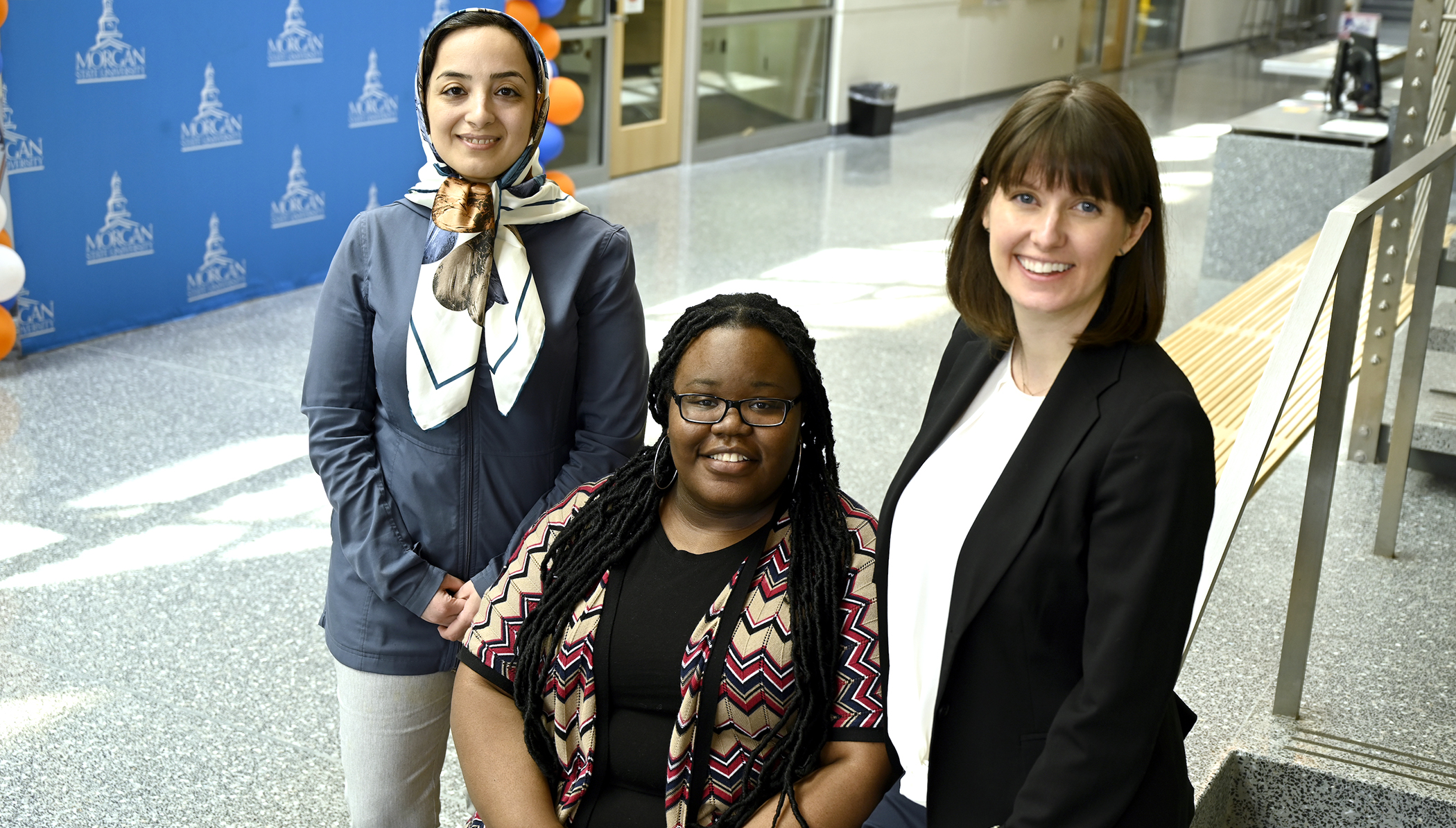Registration services will be closed on Monday, Dec 15th at 11:59 PM and will reopen on Wednesday, Dec 17th, at 12:01 AM. This pause is necessary to ensure data integrity during Canvas roster maintenance.
Morgan State Researchers to Collaborate in New NSF-Funded Institute for the Study of Trustworthy and Ethical Artificial Intelligence
Institute for Trustworthy AI in Law and Society (TRAILS) a First of its Kind, Multidisciplinary, Multi-Institutional Effort to Investigate AI Trustworthiness and its Impact on Marginalized Communities
BALTIMORE — Researchers from Morgan State University are contributing their expertise to a new multidisciplinary, multi-institutional effort supported by the U.S. National Science Foundation (NSF) to develop new artificial intelligence (AI) technologies designed to promote trust and mitigate risks, while simultaneously empowering and educating the public. Funded by a $20 million award from NSF, the new Institute for Trustworthy AI in Law and Society (TRAILS) fosters a collaboration between specialists in AI and machine learning with social scientists, legal scholars, educators and public policy experts, to transform AI development by integrating ethics, human rights, and input from marginalized communities.
Morgan’s contribution to the institute’s research will be led by Virginia L. Byrne, Ph.D., assistant professor of Higher Education and Student Affairs from the School of Education and Urban Studies (SEUS) in collaboration with Monireh Dabaghchian, Ph.D., and Naja Mack, Ph.D., assistant professors of Computer Science from the School of Computer, Mathematical, and Natural Sciences (SCMNS). The team, which will be rounded out by several graduate and undergraduate student research assistants, will focus on community-driven projects related to the interplay between AI and education and how subsets of the community feel about AI systems and its impact on their everyday lives.
TRAILS is being led by the University of Maryland (UMD). For its participation, Morgan will receive a subgrant award of nearly $1.25 million over the next five years.
“Morgan’s partnership in this caliber of novel study promises to break new ground in how we perceive, engage and ultimately embrace AI in meaningful ways that advocate for equity and ethics in our most intuitive technologies,” said David K. Wilson, president of Morgan. “We join our fellow institutions in our thanks for the federal investment that has been made in convening such a diverse assembly of dedicated researchers and partners in what very well may be, one of the most expansive and transformative studies on artificial intelligence to date.”

TRAILS will be the first Institute of its kind to integrate participatory design, technology, and governance of AI systems and technologies and focus on investigating what trust in AI looks like, whether current technical solutions for AI can be trusted, and which policy models can effectively sustain AI trustworthiness. AI-infused systems have great potential to enhance human capacity, increase productivity, catalyze innovation and mitigate complex problems, but today’s systems are developed and deployed in a process that is believed to be opaque and insular to the public, and therefore, often untrustworthy to those affected by the technology.
As Maryland’s Preeminent Public Urban Research University, Morgan will be relied on heavily by TRAILS for its leadership in conducting rigorous, participatory community-based research with broad societal impacts. The Dr. Byrne-led team will bring together researchers and community members to transform attitudes and perceptions surrounding AI trustworthiness, prepare a new generation of ethical AI researchers, and take a critical eye to the issues of power and injustice in AI.
 In addition to Morgan and UMD, TRAILS will include faculty members from George Washington University and Cornell University, with additional support from the National Institute of Standards and Technology (NIST) and private sector organizations like the Dataedx Group, Arthur AI, Checkstep, FinRegLab and Techstars.
In addition to Morgan and UMD, TRAILS will include faculty members from George Washington University and Cornell University, with additional support from the National Institute of Standards and Technology (NIST) and private sector organizations like the Dataedx Group, Arthur AI, Checkstep, FinRegLab and Techstars.
“We are excited to collaborate with our colleagues and other university partners to establish TRAILS as a national hub for AI scholarship and education that will address urgent questions of AI trustworthiness, broaden participation in AI, and develop the next generation of AI scholars,” said Dr. Byrne, who serves as Morgan’s principal investigator on the TRAILS research.
TRAILS is one of seven new national AI research institutes established by NSF as part of its overall $140 million effort to advance a cohesive approach to AI-related opportunities and risks. The AI Institutes will support the development of a diverse AI workforce in the United States and help address the risks and potential harms posed by AI.
“The National AI Research Institutes are a critical component of our Nation’s AI innovation, infrastructure, technology, education, and partnerships ecosystem,” said NSF Director Sethuraman Panchanathan. “These institutes are driving discoveries that will ensure our country is at the forefront of the global AI revolution.”

About Morgan
Morgan State University, founded in 1867, is a Carnegie-classified high research (R2) institution offering more than 140 academic programs leading to degrees from the baccalaureate to the doctorate. As Maryland’s Preeminent Public Urban Research University, and the only university to have its entire campus designated as a National Treasure by the National Trust for Historic Preservation, Morgan serves a multiethnic and multiracial student body and seeks to ensure that the doors of higher education are opened as wide as possible to as many as possible. For more information about Morgan State University, visit www.morgan.edu.
# # #
Media Contacts:
Larry Jones or Dell Jackson, for University PR
443-885-3022
Contact Information
Office of Public Relations & Strategic Communications
1700 East Cold Spring Lane
McMechen Hall Rm. 635
Baltimore, Maryland 21251
Contact Information
Office of Public Relations & Strategic Communications
1700 East Cold Spring Lane
McMechen Hall Rm. 635
Baltimore, Maryland 21251


